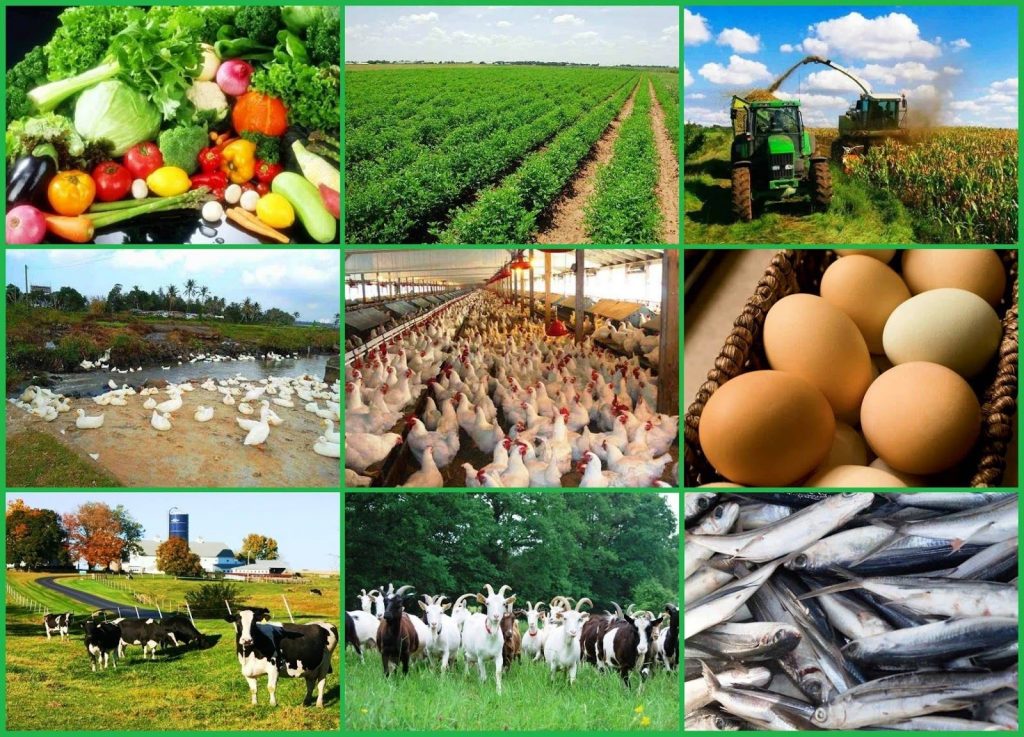The benefits of an integrated farming system
An integrated farming system entails the practice of farming with both crops and livestock on the farm where the enterprises complement each other in terms of resource utilisation, and where the farm has diversified sources of income.
The advantages of integrated farming systems include: Increased farm production and income with limited inputs, recycling of farm by-products, and use of organic materials, amongst other things.
“To this end, integrated farming systems can increase farmers’ resilience to the adverse effects associated with climate change or minimise losses brought about by drought, disease outbreaks and pest attacks,” Agribank’s technical advisor for livestock and rangeland management Erastus Ngaruka said.
According to him, agriculture production in Namibia is highly susceptible to the effects of climate change, which ultimately threatens food security and sustainable livelihoods.
He said this vulnerability can, however, be reduced through the adoption of appropriate farming systems that foster sustainable agriculture.
“Sustainable agriculture entails the continued production of food under appropriate farming practices that will not compromise the production environment.”
He said an integrated farming system is one that exemplifies sustainable agriculture.
Common combination
Ngaruka said common integrated farming systems include a combination of crops, chickens and sheep.
“Each of the components will have a role to supply and receive an input resource for the system to function efficiently. This simply means a waste material from one component is an input resource for another.”
He said the role of livestock in the system, for example, is to supply manure as fertiliser for crops.
Livestock manure can be collected from the kraal or the livestock can be allowed onto the fields to eat crop residues while dropping manure onto the soil.
“Moreover, livestock trample or incorporate litter materials with their hoofs into the soil to improve soil organic matter content. Livestock also break the soil surface layer to facilitate water infiltration. Furthermore, livestock can be used for ploughing crop fields.”
Comprehensive system
On the other hand, crop residues can be used as livestock feed.
Ngaruka said these can be collected and processed to improved digestibility.
He said farmers commonly allow animals to eat crop residues while standing in the field.
The crop or plant materials are also used to cover the soil surface (mulching) to minimise excessive water loss (evaporation) from the soil, and as compost to improve soil.
Ultimately, an integrated farming system does not merely entail the rearing of animals and growing crops, but constitutes a comprehensive system that includes sustainable resource utilisation such as soil and water conservation, which is key to a healthy system.
“When compared to the common monoculture practices, an integrated farming system is an important tool to minimise farm production costs and associated risks.”
The advantages of integrated farming systems include: Increased farm production and income with limited inputs, recycling of farm by-products, and use of organic materials, amongst other things.
“To this end, integrated farming systems can increase farmers’ resilience to the adverse effects associated with climate change or minimise losses brought about by drought, disease outbreaks and pest attacks,” Agribank’s technical advisor for livestock and rangeland management Erastus Ngaruka said.
According to him, agriculture production in Namibia is highly susceptible to the effects of climate change, which ultimately threatens food security and sustainable livelihoods.
He said this vulnerability can, however, be reduced through the adoption of appropriate farming systems that foster sustainable agriculture.
“Sustainable agriculture entails the continued production of food under appropriate farming practices that will not compromise the production environment.”
He said an integrated farming system is one that exemplifies sustainable agriculture.
Common combination
Ngaruka said common integrated farming systems include a combination of crops, chickens and sheep.
“Each of the components will have a role to supply and receive an input resource for the system to function efficiently. This simply means a waste material from one component is an input resource for another.”
He said the role of livestock in the system, for example, is to supply manure as fertiliser for crops.
Livestock manure can be collected from the kraal or the livestock can be allowed onto the fields to eat crop residues while dropping manure onto the soil.
“Moreover, livestock trample or incorporate litter materials with their hoofs into the soil to improve soil organic matter content. Livestock also break the soil surface layer to facilitate water infiltration. Furthermore, livestock can be used for ploughing crop fields.”
Comprehensive system
On the other hand, crop residues can be used as livestock feed.
Ngaruka said these can be collected and processed to improved digestibility.
He said farmers commonly allow animals to eat crop residues while standing in the field.
The crop or plant materials are also used to cover the soil surface (mulching) to minimise excessive water loss (evaporation) from the soil, and as compost to improve soil.
Ultimately, an integrated farming system does not merely entail the rearing of animals and growing crops, but constitutes a comprehensive system that includes sustainable resource utilisation such as soil and water conservation, which is key to a healthy system.
“When compared to the common monoculture practices, an integrated farming system is an important tool to minimise farm production costs and associated risks.”




Comments
Namibian Sun
No comments have been left on this article